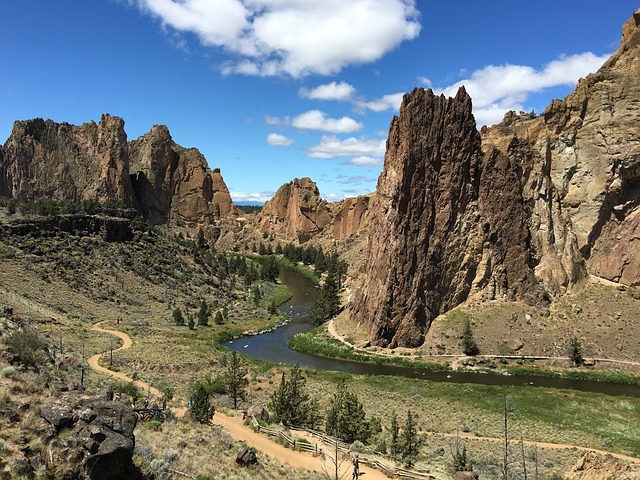The University of Oregon has been a dynamic center for environmental activism since its establishment, leading efforts to preserve natural landscapes and promote sustainable practices. Through student-led organizations, groundbreaking research, and community engagement, the university has left an indelible mark on regional environmental consciousness, shaping global discourse and ensuring sustainability remains a prominent topic.
“Unveiling the origins of environmental activism at the University of Oregon, this article explores how pioneering students and faculty sparked a movement. From early campaigns against pollution to groundbreaking research and community engagement, the University of Oregon has left an indelible mark on environmental consciousness. We delve into key moments, influential publications, and strategies that continue to shape today’s eco-initiatives. Discover the enduring legacy and relevance of these roots in shaping the environmental landscape.”
- Early Environmental Activists at UO
- Key Research and Publications
- Community Engagement Strategies
- Legacy and Modern Relevance
Early Environmental Activists at UO

The University of Oregon (UO) has been a vibrant hub for environmental activism since its inception, with students and faculty playing pivotal roles in shaping the region’s ecological consciousness. Early movements focused on preserving the natural beauty of Oregon’s landscapes and promoting sustainable practices. These pioneers addressed pressing issues like deforestation, water pollution, and wildlife habitat destruction. Their efforts led to the establishment of conservation groups and initiatives that left a lasting impact on the University’s community and the broader state.
The University’s environmental movement gained momentum through student-led organizations that organized protests, educational campaigns, and community events. These activists pushed for policies that aligned with their ecological values, fostering a culture of environmental stewardship among students and staff. The University of Oregon’s history in environmental activism serves as a testament to the power of higher education institutions in driving positive change, inspiring future generations to protect and preserve the natural world.
Key Research and Publications

The University of Oregon played a pivotal role in fostering the environmental movement’s roots, significantly shaping the discourse around ecology and conservation. Researchers and faculty at the institution contributed to groundbreaking studies that illuminated the intricate relationships between humans and their natural surroundings. One notable example is the work of Professor Donald Worster, who published “Nature’s Economy: A History of Ecological Ideas” in 1977. This seminal text explored the evolution of ecological thought, challenging traditional views and laying the groundwork for a more holistic understanding of environmental issues.
Additionally, the University’s proximity to diverse ecosystems, such as the Cascade Mountains and the Pacific coastline, provided unique opportunities for field research. Scientists and students alike conducted extensive studies on topics ranging from forest ecology to marine biology, generating valuable insights that contributed to the growing body of environmental knowledge. The University of Oregon’s impact extended beyond academia, influencing policy discussions and public awareness, and solidifying its place as a key contributor to the global environmental movement.
Community Engagement Strategies

The environmental movement at its core is a community effort, and this was recognized early on by forward-thinking institutions like the University of Oregon. The university played a pivotal role in fostering local engagement by creating programs that encouraged students to actively participate in conservation initiatives. Through student-led clubs, field trips, and community outreach programs, the University of Oregon has left an impactful mark on the region’s environmental consciousness.
These strategies not only educated but also empowered folks to take action. By involving the community in decision-making processes, the movement gained momentum, leading to long-lasting changes in local policies and behaviors. The University’s approach demonstrated that through collaborative efforts, individuals can drive significant environmental transformations, leaving a positive and lasting impact on their surrounding ecosystem.
Legacy and Modern Relevance

The environmental movement’s roots at the University of Oregon have left an enduring legacy, shaping ecological consciousness and advocacy for generations. This academic community was instrumental in fostering a critical understanding of environmental issues, inspiring students to challenge conventional practices and advocate for sustainable solutions. Their efforts have reverberated far beyond campus boundaries, influencing local policy changes and national environmental discourse.
Today, the movement’s impact endures as environmental concerns continue to dominate global discussions. The University of Oregon’s legacy serves as a reminder that grassroots activism and academic inquiry can drive meaningful change. By drawing on historical roots, modern activists and scholars can build upon past achievements, ensuring that the environmental movement remains relevant and dynamic in addressing contemporary challenges.














